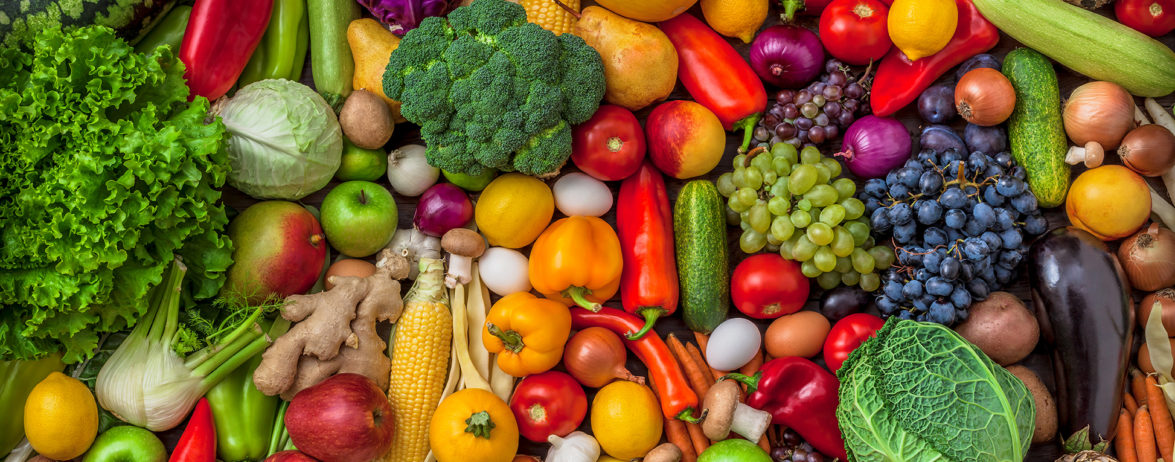Navigating nutrition is tough enough when keeping your own well-being in mind. But as parents, you know considering foods that support your child’s health, growth and development takes grocery shopping, meal planning and cooking to a whole other level. This is further compounded by the fact that there is tons of confusing, ever-changing information out there on what actually is healthy.
For National Nutrition Month, we asked a couple members of the team at Rady Children’s Hospital-San Diego’s Nutrition Clinic to address some of the nutrition topics they hear most about — and help separate fact from fiction.
Embracing Coconut Oil — Emily Bhattacharjee, M.S., R.D.
Coconut oil has become one of the most popular items for many health-conscious families. However, there may not be enough scientific evidence to support all the hype. One tablespoon of coconut oil contains 121 calories, 0 g protein, 12.5 g fat and 11.2 g saturated fat. It is very high in saturated fat — which has shown to be related to increasing cholesterol levels — similar to other fats, such as butter and lard. The type of fat in coconut oil seems to increase HDL cholesterol (the good kind) more than other fats do. However, it can also raise LDL (bad) cholesterol. There is not enough research on the long-term effects of a diet containing large amounts of coconut oil to know how much of it should be included in a healthy, balanced diet. An optimal diet incorporates a wide variety of nutrients, including types of fats. Rather than focusing on increasing one type of fat in your family’s diet, include an assortment of healthy ones, such as those sourced from olive, canola, avocado, sunflower, safflower, walnut and flax oils.
Shying Away from Sugar — Leigh Boerner, M.P.H., R.D., I.B.C.L.C.
More people are becoming aware of and concerned about the amount of sugar in their families’ foods. They may hear from their own doctors, or their children’s pediatrician, to reduce their day-to-day sugar intake — but what exactly does that mean? Simply put, can you avoid all sugar? Nope.
There are natural sugars in fruit, milk, plain yogurt and even vegetables; it’s recommended to read food labels and limit processed foods with added sugar. The Center for Science in the Public Interest recently reported that soda and other sugary drinks are the leading contributors to obesity, diabetes and heart disease; that drinks sweetened with sugar are the main source of calories in children’s diets; and that the average American consumes between 22 and 28 added teaspoons of sugar per day. That’s about 350 to 440 extra calories!
To help keep the added sugar in your family’s diet at a healthy level, take a look at the following tips:
- Maintain a diet in which 10 percent or less of your total calories come from added sugar, based on current Dietary Guidelines for Americans.
- Follow American Heart Association (AHA) guidelines recommending kids 2 to 18 have less than 25 grams, or six teaspoons, of added sugar each day. For adults in the household, the AHA suggests limiting daily intake to 6-and-a-half teaspoons for women and nine-and-a-half teaspoons for men.
- Be aware of added sugar in foods you may not automatically consider super-sweet, such as bread, dips and spreads, and sauces. These items can significantly contribute to your added sugar intake.
- Read labels and check ingredients for high-fructose corn syrup, sucrose, cane and beet sugar, honey, brown rice syrup, and fruit juice concentrate.
Demystifying Alkaline Water — Leigh Boerner
There are many different options for water these days. Some of the choices include alkaline water, protein water (added whey protein isolate), raw water (unfiltered, untreated spring water), electrolyte water and hydrogen water. Alkaline water, which has a pH above 7.4, has gained popularity with the claim that it can neutralize acid in the blood stream. Promoters of alkaline water claim it contains antioxidants and can prevent and cure a variety of illnesses. These illnesses include diabetes, cancer, digestive disorders, acid reflux and heart disease. They also say it can reduce belly fat and even slow the aging process, or that it is more hydrating than pure water (which has a pH of 7).
Our bodies are actually able to regulate our blood pH without consuming alkaline water. Our normal blood pH is about 7.4. Serious respiratory and kidney disorders may alter pH, but for most healthy individuals, our bodies are able to keep our acid-base balance in tight control and maintain our blood pH within a narrow neutral range.
Ionization machines have been marketed to improve tap water and make alkaline water through electrolysis. The alkaline water may have a pH of 8 or 9 with a higher level of potassium, magnesium and calcium.
There is no scientific evidence to support the claims that alkaline water can prevent and cure illnesses. The bottom line: If you prefer the taste of alkaline water, it is considered safe, but it is not the new “miracle water.”
